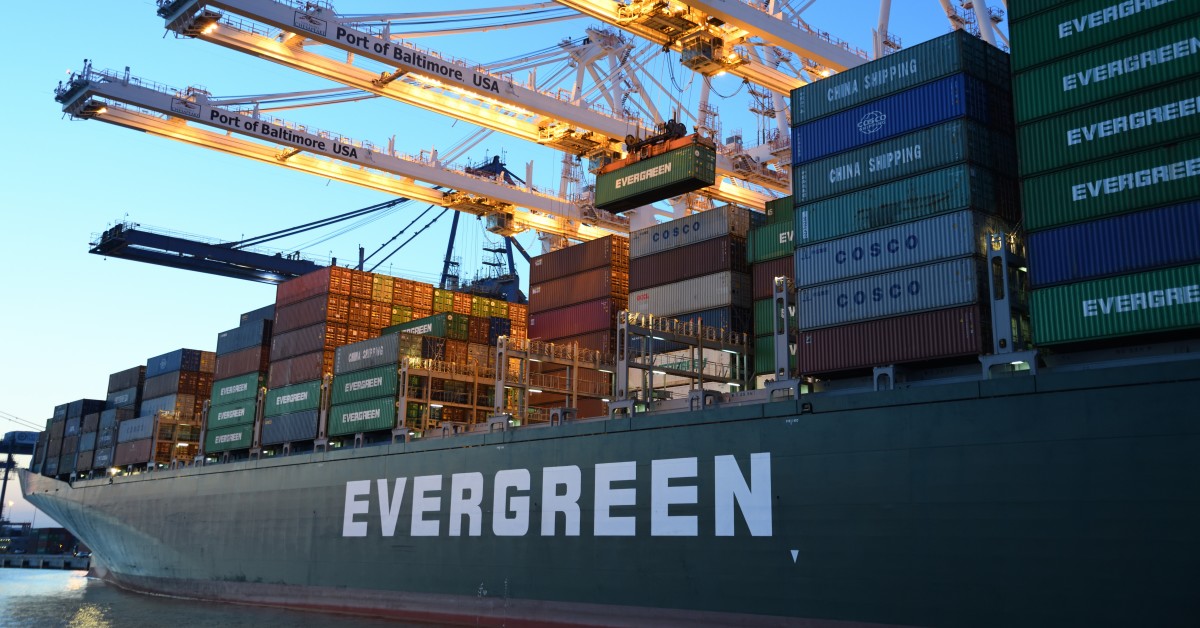
Supply Chains During Times of Crisis
Pandemics are just one of many causes of supply chain [...]

You don’t have to look far to see the impact of supply chain managers. Simply survey everything around you. The computer you’re using, the clothes you wear, the food you eat, the furniture you sit at: they’re all within reach thanks to the supply chain managers who oversee the movement of goods and products, from raw material to finished product.
Unlike jobs in nursing or teaching, supply chain management has no set education or accreditation path. According to Logistics Bureau, “The scope of supply chain management and operations is very broad, and no two companies necessarily have the same approach to it.” Jobs with the same title can have vastly different responsibilities. Plotting your career path requires planning, knowledge, and perhaps some networking.
The upside is excellent job mobility. SCM skills are highly transferable, and it’s possible to qualify for high-paying positions with the right experience and education. A master’s degree in supply chain management is among the credentials employers value.
So, want to be a supply chain manager? Here’s where the jobs are. This article addresses:
Supply chain managers work to optimize their organization’s supply chain efficiency. In smaller operations, they may oversee the entire process. At larger scale, they may focus on a single aspect of the supply chain, which consists of three categories:
Purchasing managers buy goods or oversee the agents who do. Their duties can include forecasting and demand planning to get the right amount of products or raw materials and negotiating prices. A purchasing manager may report to a supply chain manager.
Other SCM roles include:
According to the Logistics Bureau, supply chain managers require a combination of soft and hard skills to excel at their jobs.
Every high-ranking SCM professional can benefit from understanding information technology (IT), even without a traditional IT background. Hard skills may include knowing how to make business decisions utilizing:
SCM professionals typically also utilize tools and strategies like channel coordination, pricing analysis, Six Sigma, and strategic sourcing.
Soft skills include communication and negotiation, all critical in interactions with colleagues, employees, and third parties. You must be able to collaborate on a shared goal with people who may have different priorities. This includes having the project management skills to complete multiple tasks simultaneously and the flexibility to get things done.
Before jumping into specifics about finding a supply chain management job, it’s useful to define the SCM career path—to the extent it can be defined. One Association for Supply Chain Management (APICS) study reports, “The average respondent has held two to three supply chain and/or operations management positions,” meaning you’re unlikely to have a linear advancement path. The three most common job titles amongst surveyed SCM professionals include the terms:
This study demonstrates that SCM skills are transferable, and experience in one position can help you qualify for a different role. You may work as a buyer first, then a distributor, before reaching a general management position. The supply chain process is complex, and understanding different positions can be a significant advantage. Organizations may utilize job rotations to help professionals gain experience in multiple positions. This process can help strengthen your skillset and collaborative ability.
Remember, having the same job title doesn’t necessarily correlate to the same job function, which can change by industry and company. An Amazon shipping manager may have different responsibilities than one who works for a healthcare organization specializing in temperature-controlled medication. Healthcare is also an industry that may require detailed knowledge of medical laws.
Ultimately, however, supply chain professionals specialize in optimization, regardless of their role. Effective supply chain strategy means lowering costs while improving efficiency.
This section provides a more detailed breakdown of where SCM professionals work. Because the sector is so massive, it’s challenging to find a single job representing the entire industry. This article utilizes the United States Bureau of Labor Statistics (BLS) designation of logisticians, who “analyze and coordinate an organization’s supply chain—the system that moves a product from supplier to consumer. They manage the entire life cycle of a product, which includes how a product is acquired, allocated, and delivered.”
Most logisticians (24 percent) work in manufacturing. Other significant employers include:
The top industries for logisticians, and the number of professionals who work in them, are:
Industries with the highest concentration of workers (not necessarily the greatest number of workers) and the percent of industry employment these professionals make up are:
States that employ the most logistics professionals:
States with the highest employment levels, per thousand jobs:
The metropolitan areas with the most logistician jobs:
The nonmetropolitan areas with the most logistician jobs:
The highest paying industries for logisticians, and the annual mean wage, are:
Identifying the top-paying employers is a little more complicated. What you’ll earn depends more on things like job title, experience, and education than the company—though it’s safe to say you’ll make more in a senior-level position at a large multinational corporation.
According to the 2020 APICS salary report, supply chain professionals earned a base salary between $52,130 and $135,000 in 2020—and a median of $80,000. According to the study, 4.2 percent of surveyed participants earned a salary increase in 2019, one of the highest percentages for any job title.
APICS also lists salaries by job function, breaking it down into categories, rather than individual job titles. Categories, and their corresponding salaries, include:
Enable: $97,000
Deliver: $83,750
Make: $83,000
Return: $81,000
Plan: $80,000
Source: $80,000
The top-paying states for logisticians and their annual mean wage are:
The highest-paying metropolitan areas are:
The APICS offers a different look. According to the salary study, the highest-paying cities are:
The top paying non-metropolitan areas, and their annual mean wage, are:
You do not need a master’s in supply chain management to work in supply chain management, though it can help advance your career, especially if you aspire to upper-management roles like:
SCM is a field where experience can take you a long way—to better positions and better salaries. According to the 2020 APICS salary report, professionals with over 20 years of experience can expect to earn at least $103,000 per year, compared to around $60,000 for those with two years of experience or less.
Experience isn’t the only way to increase your earnings. Certification can play a significant role in how much you make. According to APICS, “Those who reported at least one APICS certification reported 21 percent higher median salary than those without a certification.” Certifications can help build your skillset and qualify you for better, higher-paying positions.
A master’s in supply chain management can be extremely useful, especially if you want to specialize in an area like procurement or merchandizing.
The two primary degree paths for SCM professionals are a Master of Business Administration (MBA) in Supply Chain Management and a Master of Science in Supply Chain Management. Both degrees can help advance your career and broaden your knowledge of supply chain management.
For example, the MS in Supply Chain Management Online at The University of Tennessee – Knoxville helps students build the critical thinking and management skills to utilize SCM practices for their business. It includes courses that focus on supply chain:
MBAs cover many of the same subjects as traditional MS programs, although in less depth. Instead, they add management-focused coursework in areas like marketing, economics, accounting, and leadership. In both degree programs, you may specialize in a specific area of SCM, such as global supply chain management, and build your overall skills in the industry.
Common degree titles include:
Like any graduate program, your degree title often matters less than where you earn it. Getting a degree from a top school can lead to better connections and ultimately higher-paying jobs. It’s cliched, but if you want to be the best, it’s wise to learn from the best. If you are considering earning a graduate degree in SCM, a field that doesn’t necessarily require one, set your sights on top programs like:
Questions or feedback? Email editor@noodle.com

Pandemics are just one of many causes of supply chain [...]

Looking to build a career in supply chain finance? We've [...]

Are you a teacher ready for a career change? We [...]

A Master of Finance provides a deeper and broader dive [...]
Categorized as: Supply Chain Management, Business & Management